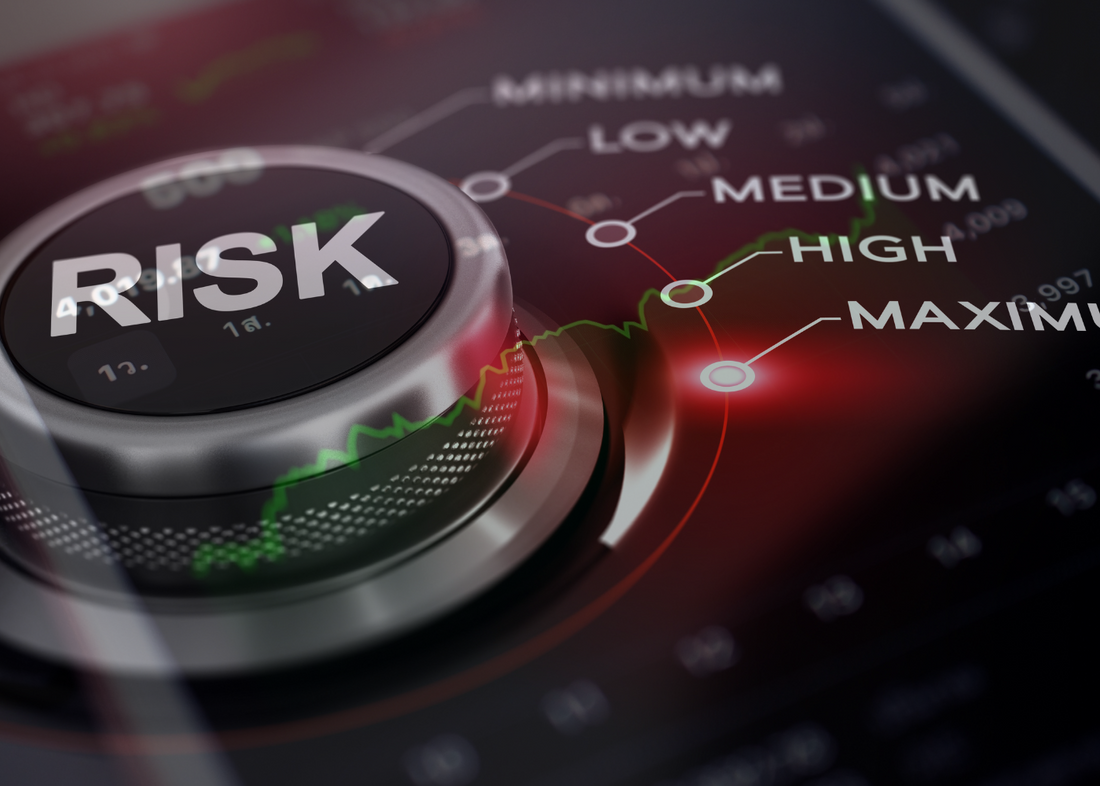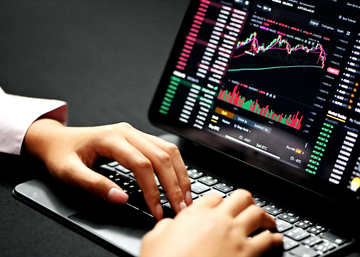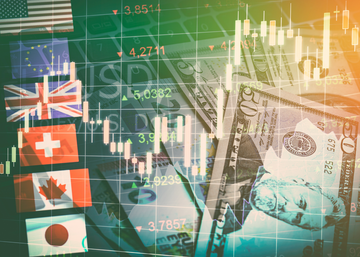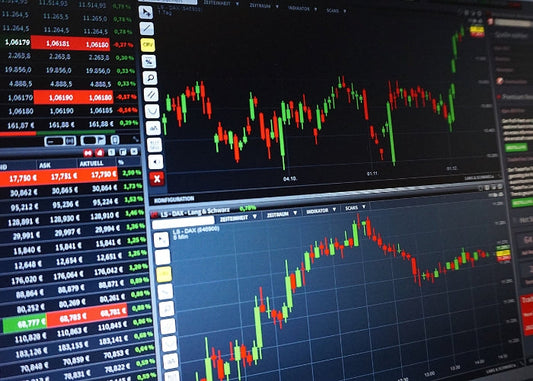Special risks in the stock market

The stock market is influenced by the economic environment, such as growth, inflation, interest rates, foreign exchange rates, and economic data. These movements are referred to as market risk, which affects the price of shares. Economic growth is often associated with a high degree of uncertainty. Economists can usually only make approximate estimates of economic development.
Risks to the stock market can also be divided into various categories. Company-related risks have their origin in the company itself, while market risks have a more general effect on the market as a whole. In addition, there are factors such as psychology or computer trading. We present the various risks.
The corporate risk
As a shareholder, you have to see yourself as a co-owner of a company, even if you only hold a very small part of the company. Accordingly, the development of a share depends strongly on the development of the company. In a negative case - for example, the insolvency of a company - total loss is also possible. Although company assets are liquidated in this extreme case, shareholders are often left with hardly anything.
Share prices are also affected by company-specific risks and general market risks.
Company-specific risk
Of course, the success of an investment depends directly on the short-term performance of a company. A company's earnings and profit prospects can change at short notice, as can the political environment, which can have a negative impact on share price performance.
Companies listed on the stock exchange present their quarterly report four times a year. Large fluctuations often occur around this event because the data and figures provide a precise insight into the company's success. But turbulence can also occur away from these fixed dates. Companies are required to report sharp changes in profit and sales forecasts. Such corrections to targets are also known as profit or sales warnings and often result in sharper share price losses.
Dividend risk
Many companies regularly distribute a portion of their profits to shareholders. This distribution is called a dividend. Although many companies have been paying dividends for decades, there is no guarantee of this payment. If a company slips into the red, it may not be able to pay a dividend. A failure to pay a dividend is often associated with losses in the stock price. Even if you don't want to sell the stock, you may have previously counted on the dividend.
The general market risk
Often underestimated is the general market risk. Trends in stock markets are often linked to long-term developments such as the direction of monetary policy or economic trends.
Accordingly, important events such as a central bank meeting often have a significant impact on the prices of individual companies. In addition, there are influencing factors such as interest rates, commodity prices, or exchange rates. General market risk is also referred to as systematic risk. The stock market environment can have a negative short-term impact on a company's share price, even though nothing has changed in the earnings and profit prospects of the individual company.
Market-immanent risks
Stock markets have a certain life of their own. Beginners should familiarize themselves with these peculiarities, as well as risks.
Important is the psychological market risk. In addition to the "facts" around actual company performance mentioned above, sentiment, opinions, and rumors play a certain role. Investment decisions are based on a variety of factors that are not always rational or objective. Analysts give their assessment of companies, as do experts or authors of stock market letters. This special stock market psychology often leads to herd behavior in the markets, which can result in an exaggeration upwards when a stock is very desirable or downwards when fear prevails.
Bear market and bull market
The respective stock market phase – the bull market for rising prices, and the bear market for falling prices - sets the pace of the markets. These stock market phases, also known as bull markets or bear markets, are influenced by fundamental economic or monetary policy developments.
In bull or bear markets, there is often a different approach to the markets. While in bull markets positive news or developments often lead to rising prices, in bear markets people often ignore positive news and focus on negative developments. Thus, similar news can lead to different price developments depending on the current stock market phase.
While floor trading dominated the stock exchanges until the 1980s, today it is primarily computers that determine everyday trading on the markets. In high-frequency trading, computers trade securities at high frequency. Algorithms determine trading and react to market changes in the shortest possible time. The computers make their trading decisions based on the algorithm, which can lead to sharp price movements within a very short time.
Automated trading can become a self-accelerating process. These price changes are supported by stop-loss orders, where a security is automatically sold as quickly as possible if it falls below a certain threshold.
Developments in foreign stock exchanges
While the DAX is traded in Frankfurt during prime time from 9:00 a.m. to 5:30 p.m., there is pre-market trading from 8:00 a.m. and post-market trading, which is based on trading hours in the U.S. and goes until 10:00 p.m. Accordingly, strong fluctuations can also occur in the DAX after 5:30 p.m. when important data is published in the U.S. and the indices there change course. European stocks often track developments in the US. In the event of price swings in Asia, European investors can usually only act the next morning.
Fluctuations in value
Stocks and indices have a natural fluctuation. If you look at the market historically, you will always find periods in which the markets have corrected, sometimes by more than 50 percent, in a short period. Therefore, the investment period plays a major role in the success of the stock market. The longer one is invested in the market, the lower the statistical fluctuations. An evaluation of the MSCI World shows that an investment of one year over the past 50 years has at best achieved an increase in value of 65.3 percent. In contrast, there was a loss of 39 percent in the worst case. For an investment period of 10 years, the average gain is "only" 19 percent, and the worst-case loss is only 4 percent.
Overview of risks on the stock market:
- Paying attention to the news: how does the news affect the share price development?
- Share prices move at official stock market times, but are influenced by other stock market price developments in after hours.
- With a long holding period, the risks on the stock market can be minimized. If you only invest for the short term, you have to accept higher fluctuations.
No comments
Home
Trive
TriveHub





0 comments